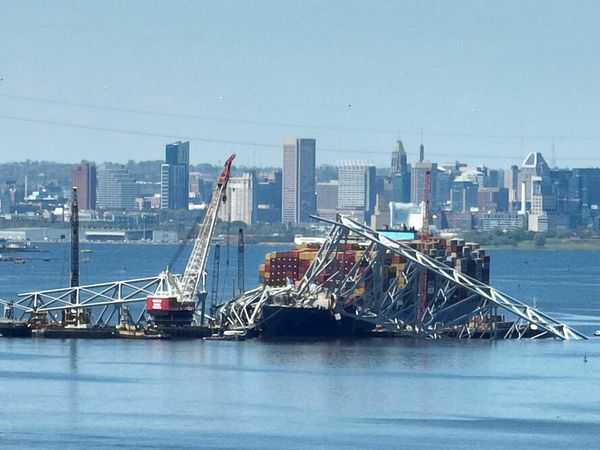
Four of the five major projects blocked by the Morrison and Albanese governments since 2019 as “clearly unacceptable” under the country’s decades-old environmental laws have been renewable projects, including the Asian Renewable Energy Hub Revised Proposal and the Lotus Creek Wind Farm.
None have been fossil fuel projects.
It comes as Environment and Water Minister Tanya Plibersek used the Environment Protection and Biodiversity Conservation (EBPC) Act to block the construction of the country’s largest offshore wind plant in a decision published Friday.
Plibersek noted some 83% of the Victorian government’s proposed Renewable Energy Terminal, located 72km from Melbourne, would sit within the Western Port Ramsar Wetland, resulting in “permanent and irreversible damage” to the internationally protected area.
“It would also have involved dredging up to 92 hectares in the wetland to allow ships to access the wharf,” she found.
Plibersek’s decision was welcomed by many in the environmental activist community. Victorian National Parks Association (VNPA) nature campaigner Shannon Hurley noted that the proposed terminal at the site placed Western Port at risk — a bird sanctuary that supports 65% of Victoria’s threatened bird species.
During the five years to 2019, however, 24 coal projects and 116 gas wells have been approved under the EPBC Act. Plibersek has personally greenlit four coal projects since 2022, principal adviser Mark Ogge from The Australia Institute’s Climate & Energy program noted.
“What is more concerning is that the rare decision to refuse a project as ‘clearly unacceptable’ under EPBC law seems to be disproportionately applied to renewable energy projects and never applied to fossil projects that are clearly unacceptable,” Ogge told Crikey.
“The nearby HESC brown coal hydrogen gasification export terminal, also in Victoria’s Western Port Bay, will require intensive dredging that will also impact the wetlands, and is a horrendously emissions-heavy form of energy production.
“It should be ruled out immediately.”
EPBC laws date back a quarter of a century
Australia’s EPBC laws underwent an independent review in December 2022 preceding a damning conclusion they were “duplicative, inefficient and costly for the environment, business and the community”. New laws are set to be introduced to Parliament sometime this year.
The Greens have called for a moratorium on all new coal and gas projects while the country awaits reforms to the outdated act, which as it stands does not force Plibersek to consider the greenhouse gas emissions of a proposed project before approving it.
The act names nine “matters of national environmental significance (MNES)” that the minister must consider the impact upon. They are world heritage and national heritage places, internationally important wetlands, threatened species and ecological communities, migratory species, Commonwealth marine areas, the Great Barrier Reef Marine Park, nuclear actions, and water resources.
Even a quarter of a century ago, excluding high emissions from the MNES list was seen as an oversight. Then Liberal environment minister Robert Hill introduced a greenhouse trigger in 2000 that would allow the minister to veto a project that would release more than half a million tonnes of carbon dioxide equivalent in a year. It was defeated following an outcry from the fossil fuel industry.
Five years later in 2005, Anthony Albanese took up the mantle as the opposition’s environment spokesperson, declaring a “glaring gap in matters of national environmental significance is climate change” in a rousing speech to Parliament following his private member bill.
Albanese’s climate trigger proposal failed as well.
But that doesn’t mean Plibersek’s hands are tied when it comes to the country’s filthiest projects, Ogge added.
“The minister could interpret the law as it is to refuse fossil fuel projects on climate grounds,” he said.
“It is open to the minister to decide large fossil fuel projects endanger MNES — for example, the Great Barrier Reef — by making climate change worse.
“She is choosing not to.”
Renewable energy goal still in sight
The decision to block the Port of Hastings terminal in Victoria hardly places Labor’s goal of 82% renewable energy by 2030 in “jeopardy”, as reporting in The Australian claimed.
Ogge noted offshore wind is forecast to make up just nine gigawatts (GW) of over 200 GW of wind and solar energy planned for the country’s grid by 2040.
It does not spell the end of the terminal either, as the Victorian government can appeal Plibersek’s decision or submit a different proposal for the project.
Victorian Energy Minister Lily D’Ambrosio said her department would be determining its next move after reviewing Plibersek’s feedback.
In September, D’Ambrosio said the now-vetoed site was chosen for its proximity to Gippsland wind farms and port precincts, as well as its deepwater channels and large swaths of zoned land.







